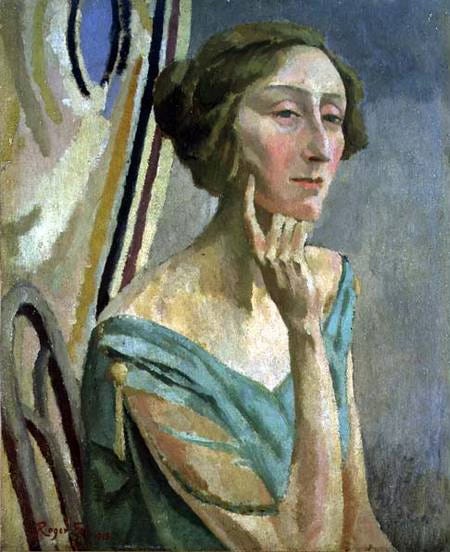The primerole and the violet
This enigmatic lyric from the fourteenth-century (with modernised spelling) resists easy interpretation. It is a balladlike song about an unknown Maiden, once sung to a now-lost tune.
In Translation: Maiden in the moor lay, In the moor lay; Seven-night full, Seven-night full, Maiden in the moor lay, In the moor lay, Sevennights full and a day. Well was her meat. What was her meat? The primerole and the – The primerole and the – Well was her meat. What was her meat? The primerole and the violet. Well was her drink. What was her drink? The cold water of the – The cold water of the – Well was her drink. What was her drink? The chill water of the well-spring. Well was her bower. What was her bower? The red rose and the – The red rose and the – Well was her bower. What was her bower? The red rose and the lily flower. In Middle English: Maiden in the mor lay, In the mor lay, Sevenyst fulle Sevenist fulle. Maiden in the mor lay, In the mor lay, Sevenistes fulle ant a day. Welle was hire mete: Wat was hire mete? The primerole ant the, The primerole ant the, Welle was hire mete: Wat was hire mete? The primerole ant the violet. Welle was hire dryng: Wat was hire dryng? The chelde water of the, The chelde water of the, Welle was hire dryng: What was hire dryng? The chelde water of the welle spring. Welle was hire bour: Wat was hire bour? The red rose an te, The red rose an te, Welle was hire bour: Wat was hire bour? The rede rose an te lilie flour.

What we love about this poem…
This text is apparently so simple, yet prompts endless questions. Many identities have been suggested for this maiden, from visitant water sprite to Mary of Egypt to the Virgin Mary, though we may equally ask whether this is a lyric we are supposed to ‘solve’ or if her strangeness and anonymity is part of what makes this poem so impactful. The dreamy setting, almost floating the maiden amongst roses and lilies, subsisting on moorland spring water and eating violets and primroses, is heightened by a nebulous sense of time: is this happening in some distant or recent past?
Its survival in a single medieval manuscript has abbreviations that suggest the dynamism of music performance off the page, and produce challenges for editors in rendering it for modern readers. Is this an exact text, or notes for performance? With lyrics like this one, there is a strong possibility of many voices bringing the text to life in medieval musical settings. The original spellings show us rhymes that were possible in Middle English that no longer work as well in Present-Day English (like ‘dring’ and ‘spring’) and the late medieval tendency to pronounce ‘e’ at the end of words (with some exceptions) changes how we hear the rhythm of this text. All these factors offer challenges and opportunities to lyricists and musicians now.
About the Author
This text is anonymous: like many medieval lyrics, we know very little about this author. There are a total of 12 French and English lyrics on the small strip of manuscript that uniquely preserves this lyric:
“Of everykune tree”, “The godemon on his weye”, “Ichave a mantel ymaket of cloth”, “Ne sey never such a man as Jordan was”, “Ami tenez vous joyous”, Ore alom alom alom”, “Icham of Irlande”, “Maiden in the mor lay”, “Wer ther outher in this toun” “Alnight by the rose ros”, “Al gold Jonet is thin her” and [12. … ydronken … ant let thy body go[n]]
To read alongside…
Benjamin Britten’s Sacred and Profane includes the "Maiden" as one of eight Middle English texts, for vocal quintet or five-part chorus.
The lyric “Icham of Irlande”, next to this one in its manuscript context, is referenced in W.B.Yeats’ collection Words for Music, Perhaps.
Sudesh Mishra, Fijian-Australian poet, reworked "Ich am of Irlaunde" to respond to the 1987 coups d’etats in Fiji, and tense relations between Indo-Fijian and native Fijian people in that period:
I am of Feejee,
the bitter land of Feejee,
and hate is all we know, cried she.
Leap down that mango tree
and dance with me
in this bitter land of Feejee.
Suggest a LitHit!
Tell us your own favourites from literature you've read, and we can feature you as a Guest Curator. Just email us with the following information:
Your full name
The title of the book you're suggesting
The location of the excerpt within the book (e.g., "in the middle of chapter 5"), or the excerpt itself copied into the email or attached to it (in Word)
Why you love it, in just a few sentences
About LitHits
LitHits helps you make time for reading by bringing you unabridged excerpts from brilliant literature that you can read on the go, anytime or any place. Our curators carefully select and frame each excerpt so that you can dive right in. We are more than a book recommendation site: we connect you with a powerful, enduring piece of literature, served directly to your mobile phone, tablet or computer.
You might also enjoy...
Feedback
We'd love to hear your thoughts on our newsletter:
kshepherdb@yahoo.co.uk
Graphic design by Sara Azmy
All curation content © 2024 LitHits. All rights reserved.



